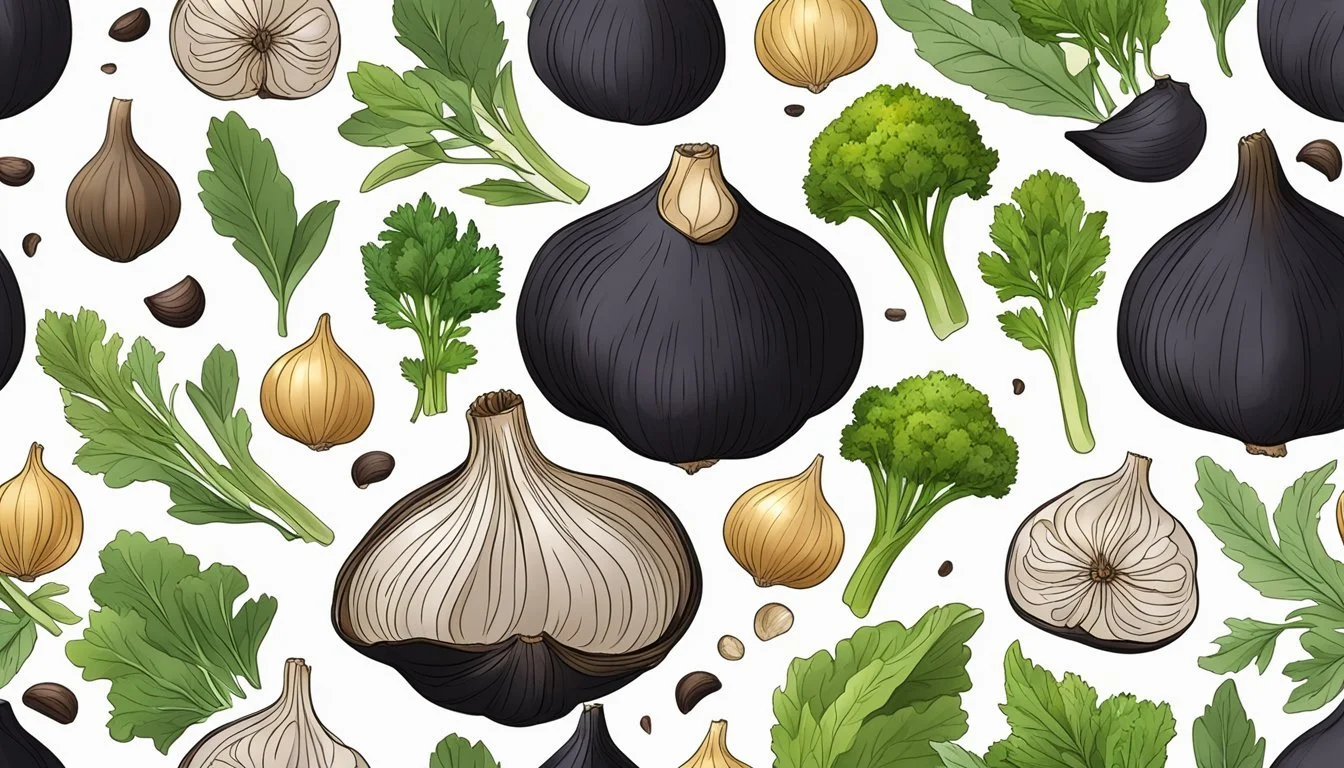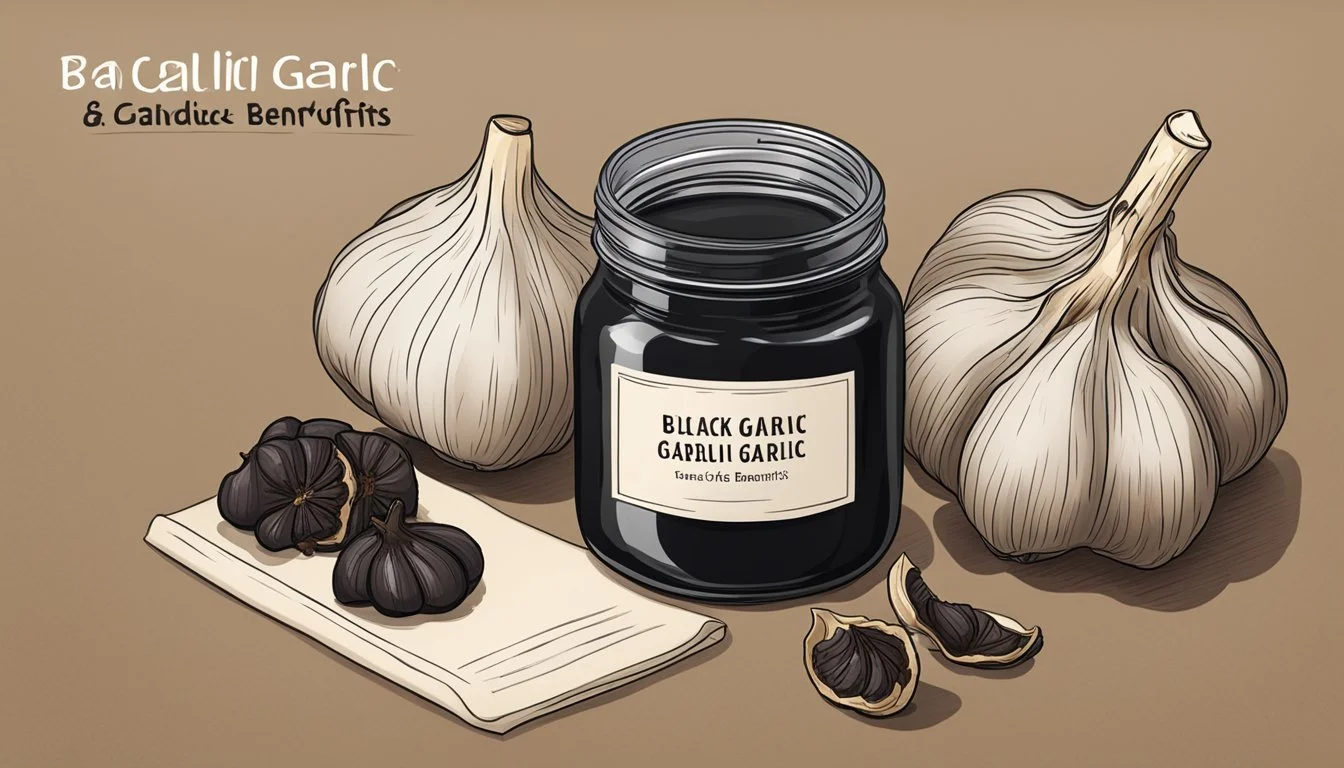What Are the Health Benefits of Black Garlic?
Unveiling Its Potent Nutritional Profile
Black garlic is a form of fermented garlic (What wine goes well with garlic?) that has been gaining popularity due to its distinctive sweet and syrupy taste and its potential health benefits. The fermentation process, typically involving aging fresh garlic bulbs under heat and humidity over several weeks, not only alters the flavor profile but also enhances the garlic's nutritional content. As a result of this transformation, black garlic contains a higher concentration of antioxidants compared to raw garlic, which are compounds known for combating oxidative stress in the body and contributing to overall health.
The health benefits attributed to black garlic are indeed wide-ranging. Research suggests that this ingredient could play a role in regulating blood sugar levels, which is particularly significant for individuals with diabetes or at risk of developing the condition. Additionally, black garlic's anti-inflammatory properties may be beneficial for brain health, potentially improving cognitive functions and memory.
Furthermore, the sulfur compounds that become bioavailable through the fermentation process may contribute to a strengthened immune system. This could help the body fend off common bacterial and viral infections more effectively. Moreover, the rich antioxidant content in black garlic may aid in protecting the heart and could potentially slow down the growth of cancer cells, though more research is needed to fully understand these effects. Overall, black garlic emerges as a functional food with promising health benefits that could be a valuable addition to a balanced diet.
Nutritional Profile of Black Garlic
Black garlic offers a unique nutritional composition that combines a rich array of vitamins, minerals, and antioxidants. This profile differs from that of raw garlic, primarily due to the changes induced by the fermentation process.
Vitamins and Minerals
The fermentation process not only enhances the flavor but also the nutritional value of black garlic. It is a source of vitamins such as vitamin C and some B vitamins, which are crucial for energy metabolism and immune function. As for minerals, black garlic contains calcium, iron, and phosphorus, contributing to bone health, oxygen transport, and cell function.
Antioxidant Properties
One of the most prominent features of black garlic is its high level of antioxidants, which include flavonoids and sulfur-containing phytonutrients. These compounds help protect cells from oxidative damage. The amino acids present in black garlic also play a role in this aspect, as they are involved in the synthesis of glutathione, an important cellular antioxidant.
Comparison With Raw Garlic
When compared to raw garlic, black garlic contains a higher concentration of certain antioxidants, such as S-allyl-cysteine, which is more stable and easily absorbed by the body. The fermentation process also contributes to a reduction in the allicin content, which is responsible for raw garlic's pungent taste and smell, but in turn, increases the levels of other beneficial compounds. Black garlic is often considered to have a different nutrient profile, which can contribute to its unique health benefits.
Health Benefits of Black Garlic
Black garlic, a form of aged garlic, has gained attention for its potent health benefits. It is particularly noted for its role in heart health, glycemic control, cancer risk reduction, and cognitive and immune support.
Enhancing Heart Health
Black garlic contributes to cardiovascular well-being by improving cholesterol profiles. It is known to increase HDL (good cholesterol) levels while decreasing LDL (bad cholesterol), thus helping to reduce the risk of heart disease. The fermentation process that black garlic undergoes enhances its antioxidant properties, helping to combat oxidative stress that can damage heart tissues.
Regulating Blood Sugar Levels
The antioxidants in black garlic can assist in regulating blood sugar levels, making it a beneficial food for those with diabetes. Its ability to modulate blood glucose not only helps to manage current diabetic conditions but may also contribute to the prevention of diabetes and its associated complications.
Reducing Cancer Risk
Consuming black garlic may be associated with a reduced risk of cancer. Compounds found in black garlic have been shown to inhibit the growth of cancer cells. Its high levels of S-allylcysteine, a derivative of the compound allicin, and increased antioxidant content help suppress tumor growth and may offer protective effects against cancer development.
Boosting Immunity and Brain Health
Black garlic can play a role in enhancing the body's immune system and promoting brain health. Its natural anti-inflammatory properties can reduce inflammation in the brain, which is known to impair memory and cognitive function. Additionally, the antioxidants found in black garlic fortify the immune system, offering an added defense against free radical damage and oxidative stress.
Culinary Uses of Black Garlic
Black garlic, with its sweet and milder flavor, is a versatile ingredient that offers a unique twist to traditional recipes. Its fermented nature enhances flavors, ensuring a culinary experience that is both rich and nuanced.
Incorporation in Recipes
When it comes to using black garlic in recipes, chefs appreciate its ability to transform simple dishes into gourmet experiences. Black garlic can be sliced, minced, or used as a paste, and it seamlessly integrates into a variety of dishes. Here are some specific ways to incorporate it into recipes:
Salads: Blend minced black garlic into dressings or sprinkle it over the salad for a sweet, savory note.
Hummus: Mix it into hummus to add depth to the flavor profile.
Roasted Dishes (What wine goes well with roasted dishes?): Combine black garlic with roasted potatoes or onions to complement their natural sweetness.
Black garlic can also be used as a substitute for regular garlic in many recipes, providing a similar flavor with a gentler intensity.
Enhancing Flavors
Chefs often use black garlic to enhance the flavors of various dishes:
Meat Marinades: The sweet and complex taste of black garlic pairs well with soy sauce and other ingredients in marinades, helping to tenderize and flavor meats.
Sauces and Glazes: It can be blended into sauces or reduced into glazes that work beautifully on vegetables, meats, and tofu.
The use of black garlic allows one to achieve a balance between the sweet and umami flavors, ensuring that each dish is flavorful without being overpowering.
Potential Side Effects and Considerations
While black garlic is generally considered safe and beneficial for most individuals, there are certain side effects and interactions to be aware of. The following subsections outline dietary precautions and medicinal interactions to consider when incorporating black garlic into one's diet.
Dietary Precautions
People with a known allergy to garlic should avoid black garlic, as it can cause an allergic reaction including symptoms like skin rashes or difficulty breathing. Although not common, some individuals might experience heartburn, bad breath, or digestive discomfort following its consumption. Those with a tendency to bleed or who are preparing for surgery should be cautious because of black garlic's potential blood-thinning properties.
Medicinal Interactions
Black garlic might interact with certain medications, particularly blood thinners such as warfarin, increasing the risk of bleeding. People taking medications for managing cholesterol or blood pressure should also monitor their levels closely, as black garlic might augment the effects of these drugs. Continuous, high dosage consumption without professional guidance might increase the risk of liver damage, though such occurrences are rare with black garlic.
Frequently Asked Questions
This section provides concise answers to common inquiries about the health implications and usage of black garlic.
How much black garlic should be consumed daily for health benefits?
One to two cloves of black garlic per day are typically recommended. However, individuals should consider their overall diet and consult with a healthcare provider before adding a new supplement to their regimen.
Are there any potential risks associated with consuming black garlic?
Black garlic is generally safe, but like any food, it can cause adverse reactions in certain individuals. Those with garlic allergies or on certain medications should check with their doctor before consuming black garlic.
What are the specific benefits of black garlic for male health?
Black garlic may support male health by enhancing heart health and potentially improving circulation, which are important for overall vitality and physical wellness.
Could black garlic have a positive impact on blood pressure management?
The antioxidants and bioactive compounds in black garlic can help relax blood vessels, potentially aiding in the management of blood pressure levels.
What advantages does black garlic offer for skin health?
The antioxidants in black garlic may protect the skin against oxidative stress and inflammation, which are factors in skin aging and disorders.
How does black garlic contribute to hair health?
The antioxidant properties of black garlic can also aid in reducing scalp inflammation and may help to strengthen hair follicles, contributing to hair health.




